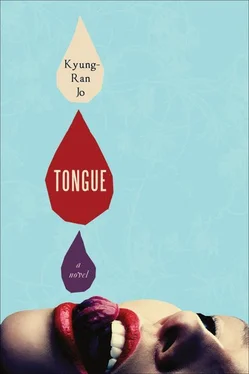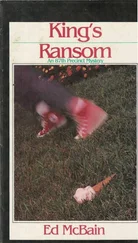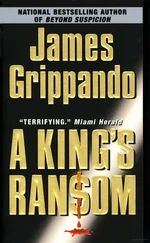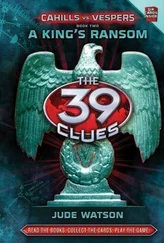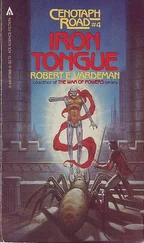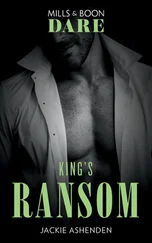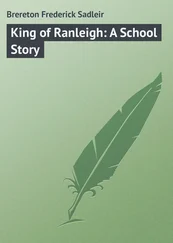His doctor raised with me the issue of my noncommittal behavior toward Uncle—it wasn’t helpful to ignore and protect Uncle as he continued to drink, as it downplayed the reality that alcoholism is a real disease and may have been hindering Uncle’s recovery. And that it’s hard to continue drinking without someone condoning it. He told me all of this in a reproachful tone, as if he had actually peeked into my thermos. That’s probably why he called me to the hospital today. I wonder if I need to defend Uncle or myself.
Uncle stayed with us for six months before he went into the hospital. One day, Seok-ju came back from walking Paulie with Uncle and said, worriedly, that he kept falling down. The cabbage I was holding dropped on the floor. Thump. The dense sound rippled in the air, like a bad smell acting as a warning. Falling over is one of the first symptoms of Korsakoff’s syndrome. I don’t think we should leave him by himself, he said, approaching me and gently pulling my shoulders toward him. Six months, though neither long nor short, was enough for Uncle to acknowledge that the disease had progressed beyond his control, leading to his decision to admit himself to the hospital. Shedding his doctor’s coat, Uncle wobbled into the hospital where he’d worked.
You can say that because you’ve never seen him fall down again and again, I want to tell the doctor. Right now I’m the only person here for Uncle. What else would I be able to do for him, except to bring him this small thermos? Is that what I’m supposed to say? I don’t say anything in the end. Because I don’t want to appear oblivious. Because Uncle is the only person who knows that the taste of love encompasses the wilted, the overly ripened, the rotten, and the bitter.
Uncle is sitting on a bench, a thin camel cardigan draped around his shoulders over his hospital garb. He sits there leisurely, not waiting for me but as if he’s relaxing after a light meal. He glances back at me, his eyes squinting in the sun. Right now there’s nothing for us to do but smile at each other. He looks too thin but it may be better to pretend not to notice. Uncle must also be thinking things about me but not asking.
“So I was thinking, Uncle.”
“Hm?”
“I’m glad it’s spring.”
“Yeah, it’s already spring. But even in April, it’s still cold in the shade. Here, it’s hard to tell if the seasons are changing.”
“Then let’s leave.”
“Why, all of a sudden?”
“You’re not home here.”
“This can be as good a place as home.”
“It’d be nice if you came and looked after Paulie and other things.”
“Things are still hard for you, I guess?”
I don’t say anything.
“I’m still more comfortable here.”
“What are you afraid of, Uncle?”
He’s quiet.
According to his doctor, the most important thing for Uncle right now is to decide when to end treatment. During his stay, he repeatedly cycled through drinking and quitting—which only made him realize that nothing had changed—followed by guilt and dejection. His doctor says the mere idea of ending the treatment causes Uncle enormous anxiety.
“Have faith, Uncle.”
“Faith in what?”
“Faith that you won’t drink again.”
“You know I can’t ever have that.”
I don’t argue.
The doctor, once Uncle’s colleague, tried to reassure me by saying that treating an alcoholic was a very worthy job. I nodded, but I don’t know how worthy it really is. Never having a drink is difficult to put into practice. An alcoholic is completely cured not when he doesn’t drink a drop of alcohol, but when he’s able to control himself and drink a moderate amount. Uncle knows this. Just as he can’t completely stay away from alcohol, he can’t erase memories of his late wife. Should Uncle bury those feelings deep down, or try to forget her? If Uncle can’t regulate his drinking, it’s his choice, not the result of a lack of willpower. So it’s not up to the doctor or me to decide when to terminate treatment. All we can do is watch over him. Perhaps Uncle needs time to realize that alcohol isn’t necessary in his life and that he can survive without drinking. As his family, I have to decide whether I will participate in his treatment.
“What do you want me to do, Uncle?”
“If I think I need help, I’ll request it from you.”
“Request is a strange word, Uncle.”
“Is it? Then I’ll ask you for help.” Uncle’s smile is wide, showing all of his teeth.
There are times when you should listen to the doctor. The doctor told me that the patient’s family has to determine when to be active in the treatment and when to step back. If you become involved too quickly, it can trigger avoidance or anger. This is enough for today. I get up from the bench and dust off the back of my pants.
It’s difficult for an alcoholic to stop after the first glass. Drinking becomes a defense mechanism, and when someone tries to stop him, he gets more aggressive, destroying not only himself but also his loved ones. An alcoholic like Uncle has to understand two things: that he can’t drink less or quit in one fell swoop, and that he can’t ever give up trying. Alcoholics believe that they can limit themselves and trust that they have the willpower to quit. Neither is true. But I’m confused. Am I talking about Uncle or about myself?
“I HATE ONIONS.” Mun-ju frowns, glancing at the chopping board.
I am carefully slicing onions into rings, taking care not to ruin their shape. I smile. Grandmother valued the onion, just after garlic and the potato. On Grandmother’s death anniversary, the first food I make to honor her memory is onion pancakes filled with meat. “What’s so bad about them?”
“Everything. Their shiny hardness and their smell and their white color. They look exactly like testicles.” Mun-ju never met Grandmother but came over to cook with me at every death anniversary and to drink the ceremonial wine to honor Grandmother’s spirit. She is trimming mushrooms to be skewered.
“So you don’t like garlic, either?”
“Come on, stop laughing.”
“It’s funny. You like garlic but not onions.”
“So? Onions are onions and garlic is garlic.”
“They’re in the same family, though.”
“Plus I had a dream about onions last night.”
I should have made the onion pancakes before Mun-ju got here. I quickly finish slicing the onions and rinse them in cold water. Mun-ju’s dreams are quite structured and colorful—of course, the person who has the dream and the person who analyzes it see the same thing differently, and if I had her dreams I wouldn’t call them colorful. I’ve dreamt about tomatoes several times, baring a segment of my unstable unconsciousness as if I were a holey block of Emmentaler.
“What was the dream?” I ask.
“I was lying in bed and the door opens and a man with a tray walks in, holding the onion dish I hate the most. He rubs it all over my face and tries to shove it into my mouth. I tried so hard not to open my mouth that when I woke up my jaws were sore.”
Mun-ju looks calm. Last time, she’d dreamt she was so thirsty that she hacked at a hard palm and cracked it open, getting drenched when all the juices dribbled out. A more visceral dream was the one in which dirt-caked carrots pushed through her body, one by one. Mun-ju’s dreams are filled with grinding teeth and swallowing and being eaten up and bitten and chewed, violent and aggressive like an imaginary world created by a child. I wonder what Uncle would say if I were to tell him about Munju’s dreams. People you need aren’t there for you . Maybe Mun-ju wouldn’t want to relate those stories even if Uncle were here. If only the dreamer could accurately translate the dream. It’s a positive sign that Mun-ju no longer rinses out her mouth after eating or dreaming.
Читать дальше
